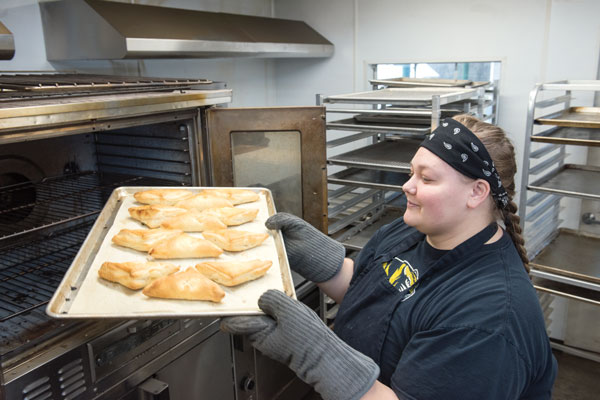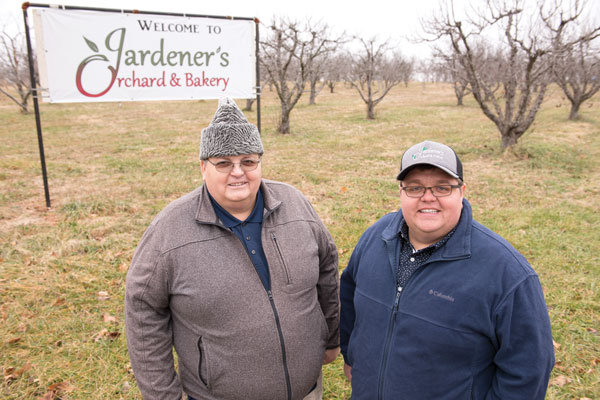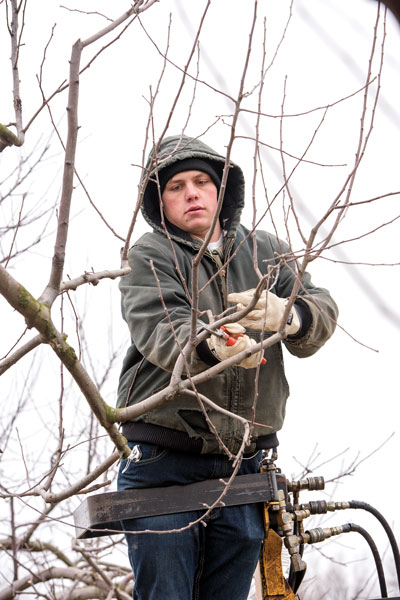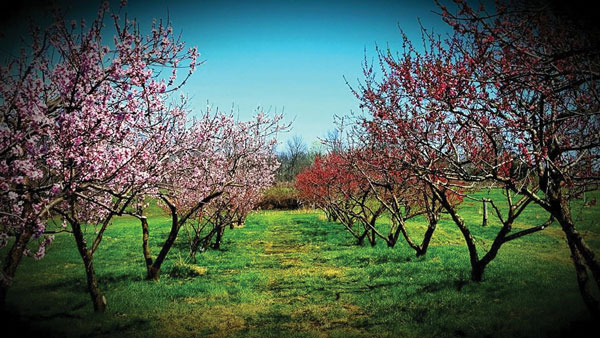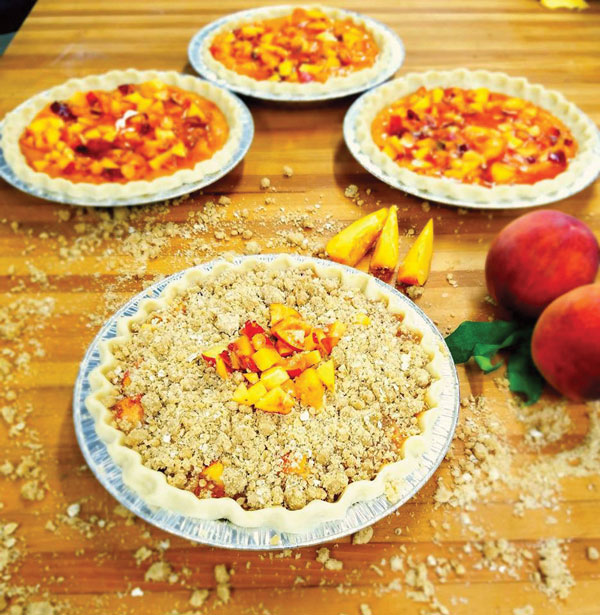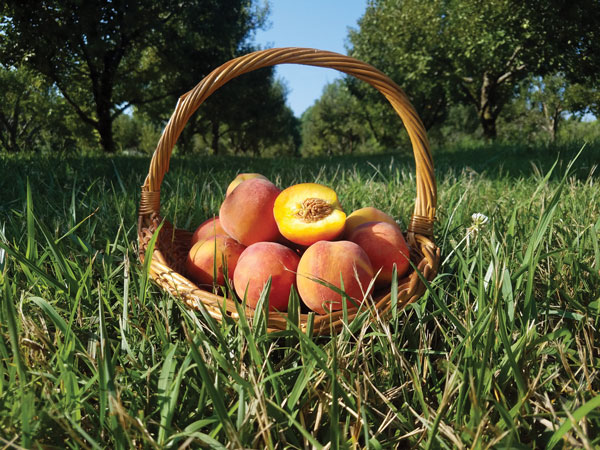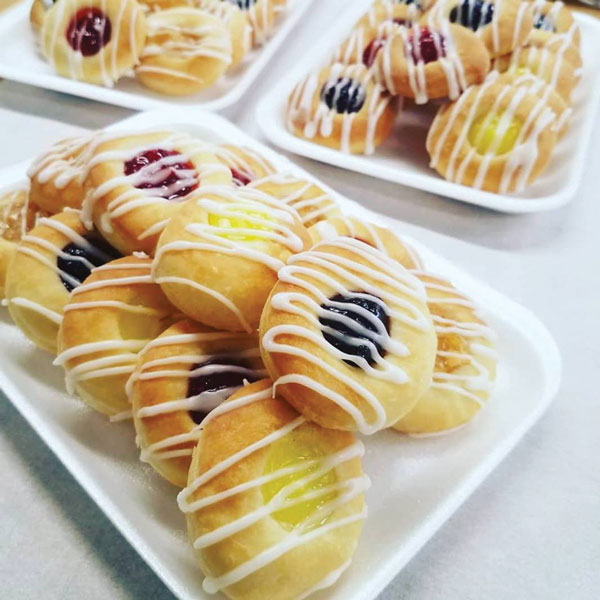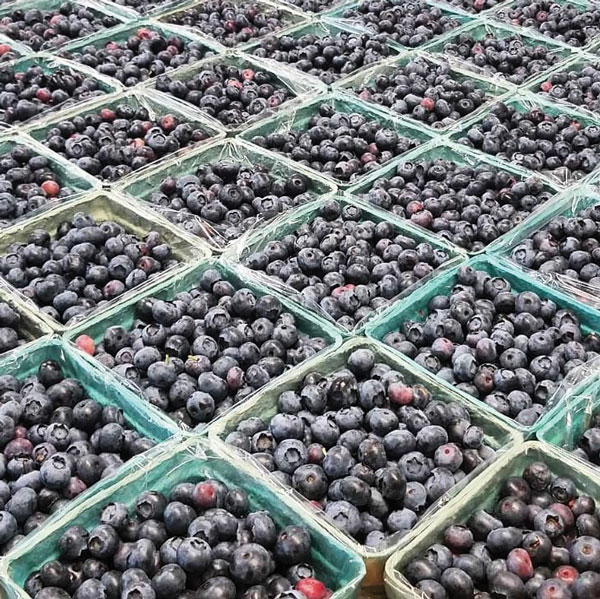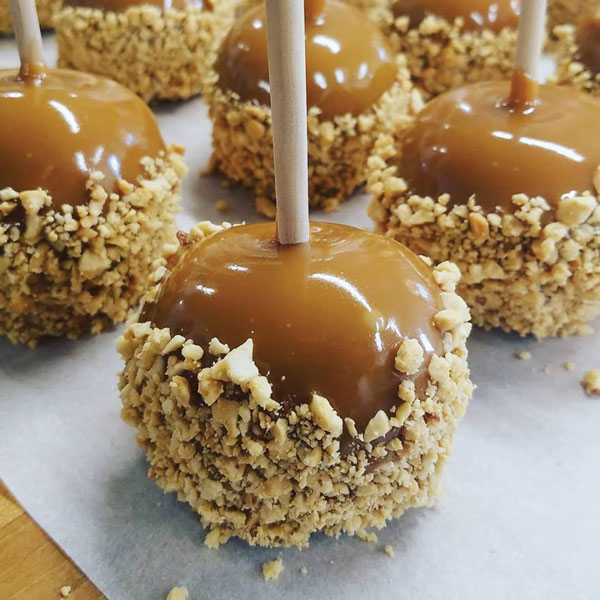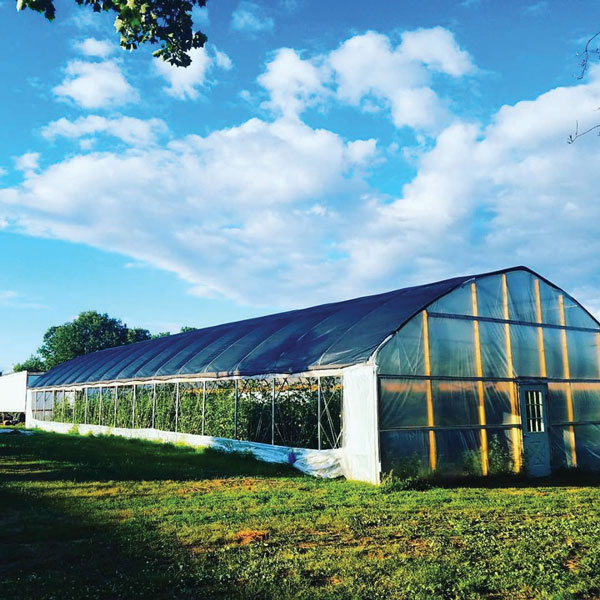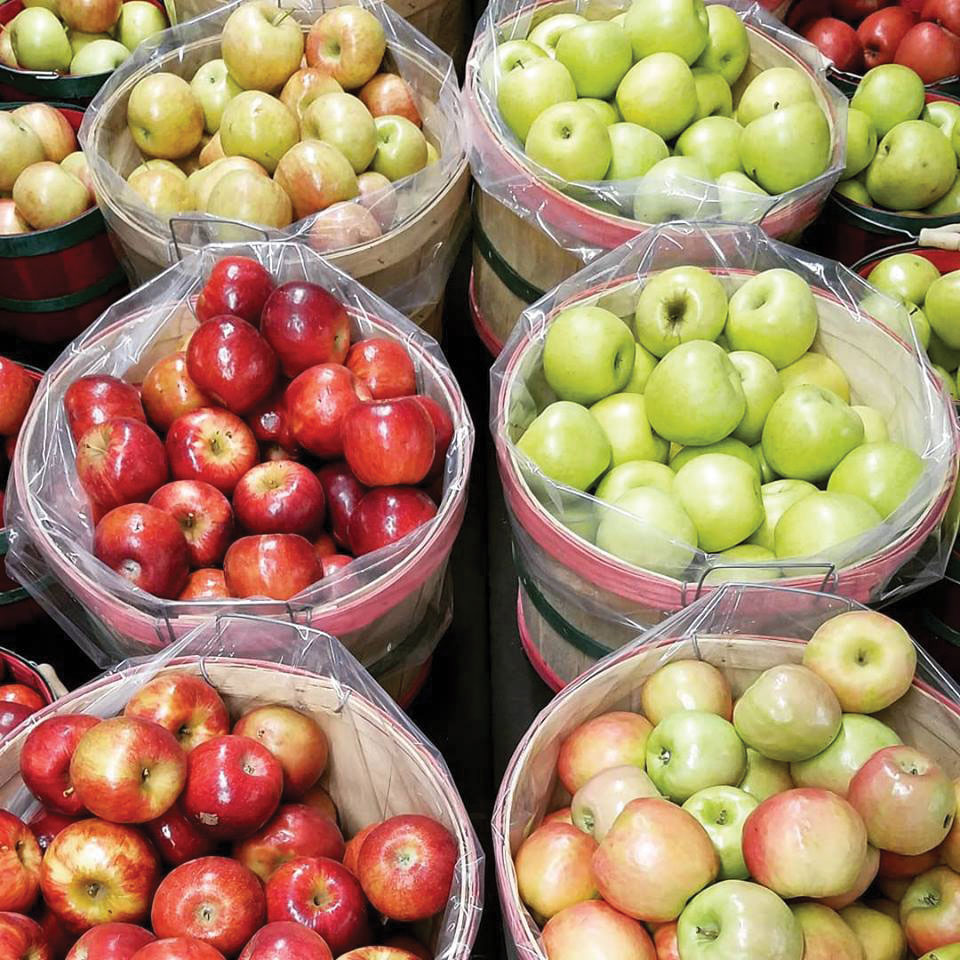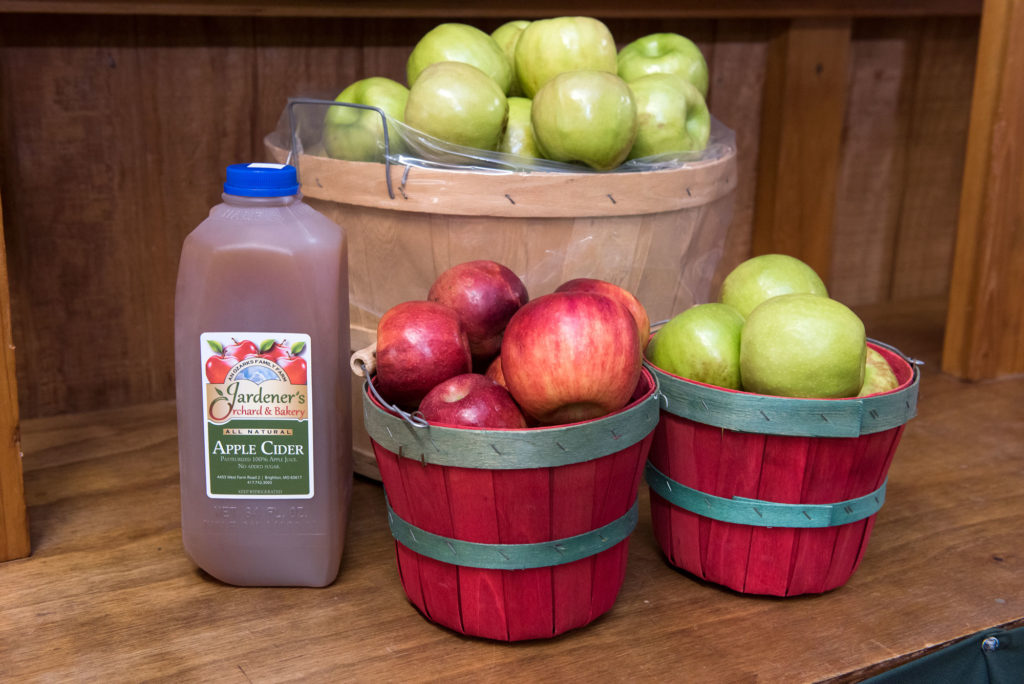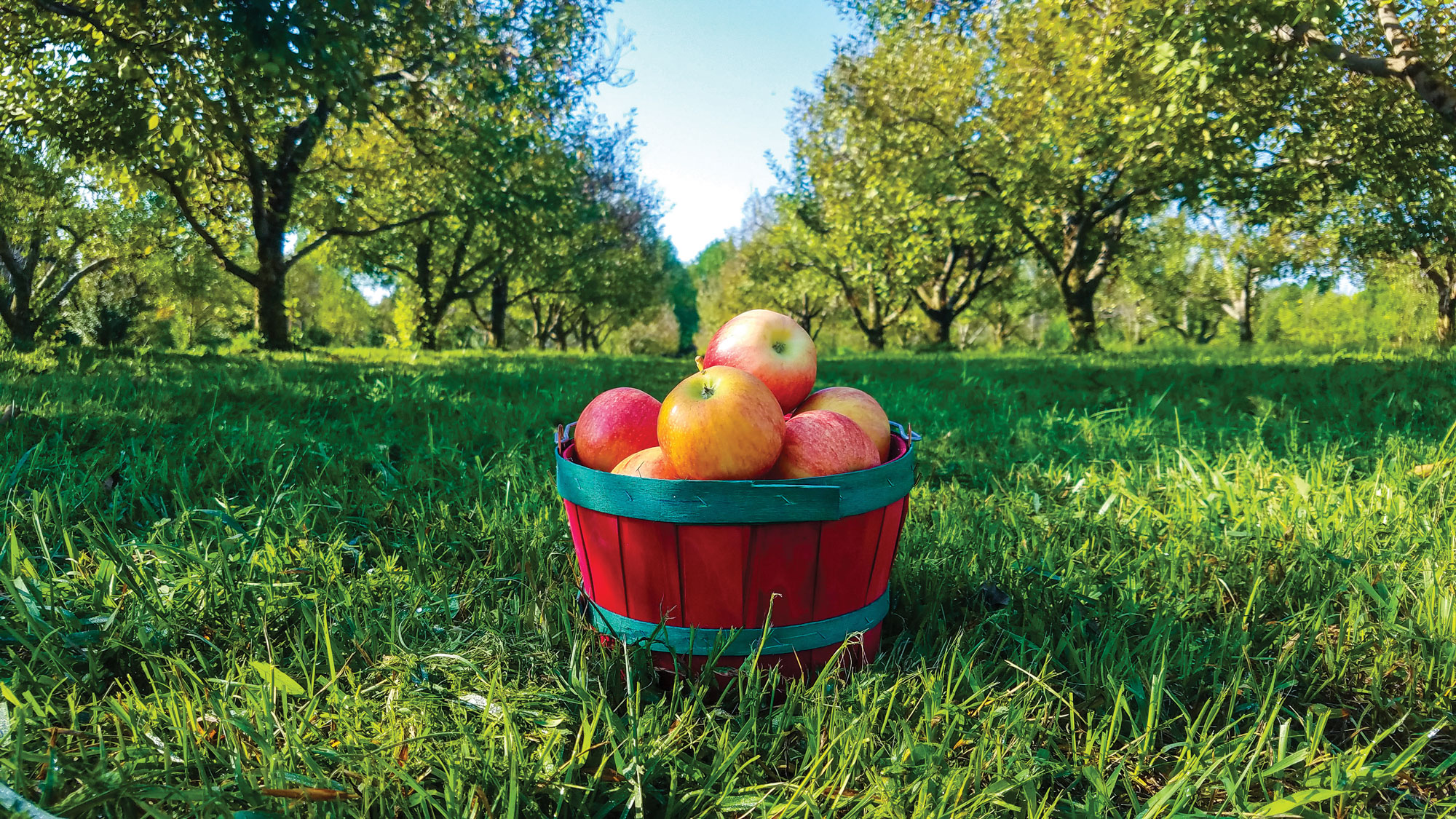
Orchard Opportunity
December 15, 2019
Written By Jason Jenkins
After journeying from Romania to the United States, the Gradinariu family has put down deep roots in the Ozarks
Radu Gradinariu was only 4 years old when his father, Cornelius, made a decision that would change the course of his family’s life forever.
Living in Soviet-occupied Romania in the late 1980s, the then-27-year-old father of three fled from communist oppression and religious persecution in search of a better life for his young family. On his first attempt, he was caught at the border and jailed for three months. He remained undeterred, however. After several months of constant surveillance and interrogation, he tried again—and succeeded—reaching Yugoslavia where he entered a refugee camp and applied for asylum.
“We were separated from my father for about six months,” Radu recalls. During this time, the Romanian Revolution would take place, leaving the country in chaos and the borders open. “My dad paid a trafficker to bring us over to Yugoslavia. I remember we crossed the border at night, on a bridge across the river. It was like what you see in the movies.”
The family was given a choice: immigrate to Australia, Canada or the United States. Radu says his father’s reply to the United Nations examiner emphasized their desire to practice their religion freely.
“He said he wanted to go to the States because it was the only country in the world that has God on its currency,” Radu says. “He wanted to go somewhere where we could be free to serve our God.
“I’m not sure I could have done it,” he says of his father’s decision to first attempt freedom. “Leave three kids and a wife at home knowing that you could die and leave them as orphans? It was that faith in God that led him to believe there was something better out there.”
Moving to Missouri
With nothing more than identification papers and the clothes on their backs, Cornelius and his wife, Verginia, left Europe with their three children in 1990. They initially settled in Riverside, Calif., where Cornelius’ sister already lived. An electrician by trade, Cornelius found work, and the family continued to grow. By 2005, there were 10 children.
“My aunt had moved to Springfield (Mo.) about four years earlier, and we came to visit them on vacation,” says Radu, the eldest child. “My dad’s dream was to have a farm, and he was ready to get away from the chaos and traffic of California. My parents bought this little 10-acre place down near Springfield, and we moved to Missouri.”
For about a decade, the Gradinariu family would make its living as poultry farmers, raising thousands of turkeys annually in two southwest Missouri locations. The rigors and logistics of operating two geographically separated turkey farms, however, became problematic.
“We were spread too thin and equipment was always on the road back and forth,” Radu says. “So in 2012, we had a buyer, and we sold one of the turkey farms.”
After taking time in 2013 to visit their homeland of Romania, son Victor discovered an opportunity: Plaster’s Orchard outside Brighton, north of Springfield, was for sale. He encouraged his father to consider the orchard, but Cornelius was reluctant. It was Verginia who convinced her husband they needed to take a look, Radu says.
“Everything kind of fell into place,” he says. “My parents came up here and 20 days later, we moved in. We renamed it Gardener’s Orchard & Bakery.”
Fruit Trees and Tenacity
Much like their foray into turkey production, the Gradinarius took over the 33-acre peach and apple orchard without any firsthand knowledge or experience in fruit production.
“All we had was the ability to work hard and figure things out as we went along,” Radu says with a smile, noting they got out of the turkey business altogether in 2015. “Everyone is entrepreneurial-minded.”
While the 2,500-tree orchard had been successful for the Plaster family since they started it in the early 1980s, it had seen decline in the years leading up to its sale. So, the new owners took to the task of pruning trees that were still productive and removing those that weren’t. Radu says they’ve planted about 1,500 new trees in the past five years.
The orchard comprises no fewer than 15 peach varieties and 13 apple varieties. Those who visit in July to pick peaches will find varieties including Sweet Sue, Big Red, China Pearl, Ruby Prince and Red Haven. Apples are ready in September and include familiar favorites such as Red Delicious, Golden Delicious and Granny Smith, along with varieties not often found in grocery stores—Early Blaze, Arkansas Black and Grimes Golden.
The orchard occupies roughly 20 of the farm’s 33 acres, so to increase production, Radu says, they are employing new techniques. Rather than planting trees at a more traditional 20-foot spacing, the newest trees at Gardener’s Orchard are planted on 3-foot spacing along a trellis.
“It’s called a high-density system,” Radu explains. “Instead of growing more wood to support fruit, the trees start producing fruit sooner. You can get approximately four times the yield per acre, so converting our 20 acres should produce as much as 75 or 80 acres.”
Diversifying the orchard beyond apples and peaches also has been a priority. Cornelius started a small 200-plant blueberry patch that came into production in 2018. That experiment has prompted son Valentin to establish a larger patch of blackberries on acreage he purchased adjacent to the current orchard.
High-tunnel vegetable production is another seasonal avenue for the Gradinarius. Last year, son Andrei cultivated his first crop of tomatoes, and in 2019, the family plans to have three high tunnels in production growing tomatoes, peppers and cucumbers. The veggies are sold at farmers markets around southwest Missouri, as well as at the orchard’s roadside stand just off Highway 13.
“We only sell Missouri produce, nothing else,” Radu says. “We either grow it ourselves or source it from other local farmers.”
Making Seasonal Sustainable
Perhaps the largest challenge for agribusinesses like the Gradinarius’ orchard is the seasonality. Fruits and vegetables can supply income during the growing season, but bills still must be paid throughout the fall and winter. Radu says they added the bakery to help them through the long offseason.
“My sister, Aurora, went to culinary school at OTC [Ozarks Technical Community College],” he explains. “She found out that she’s really good with doughs and breads, so we put in a bakery at the farm store in 2016. A lot of businesses like ours have a bakery on the side.”
Each week, Aurora’s made-from-scratch breads, Danishes, pies, donuts and other homemade baked goods are sold not only on the farm and at farmers markets, but also at coffee shops in the Springfield area. Radu says the bakery is the fastest-growing segment of their business, accounting for nearly 30 percent of revenues last year.
“People know that it’s fresh and homemade, and we don’t add any preservatives, so it tastes like it should,” he adds.
Exploring other entrepreneurial endeavors has led to more consistent revenue streams for the orchard. Radu says that while they began making fresh-pressed cider the first year the family took over, it wasn’t until this past year that they had a pasteurization process in place that increases shelf life.
“We didn’t want to heat our cider to pasteurize it because that changes the flavor profile, and we didn’t want to lose the tart-sweet flavor we get by combining three apple varieties in every batch of cider,” he explains. “So, we decided to go with an ultra-violet pasteurization process. It increases the shelf life of our cider to six weeks.”
Radu is currently working to develop the orchard’s own line of apple cider vinegar, which takes a seasonal product and creates a shelf-stable, year-round opportunity.
“We’re really just trying to adapt and innovate,” he says, adding that they’re looking at other products such as a line of gourmet popcorn, canning produce and apple butter, and turning old fruit trees into hardwood chips and chunks for use in smokers. “I’ve never made vinegar in my life, but we’re going to try and make it work. If you see an opportunity, you have to jump on it.”
While customers can visit six days a week year-round, the pick-your-own-fruit season is by far the most popular time to come to Gardener’s Orchard. During apple season, orchard tours and hayrides are popular for families and groups, Radu says.
He says the public’s desire to learn more about their food and its production is something the orchard has embraced. Through social media such as Facebook and YouTube, they keep customers informed about what’s happening at the farm, as well as sharing “behind the scenes” peeks.
“I’ve learned that people like watching the process almost more than enjoying the final product,” Radu says. “They want the story of how our bread is baked or how our cider is bottled as much as they want to eat it or drink it.”
While so much has changed since the Gradinariu family first came to the United States, one thing is certain: Cornelius has achieved the self-reliance he could have only dreamed about back home in Romania under communist control. Radu says they travel back to their motherland to visit family every few years, and the experience is always sobering.
“When you come back, you’re a changed person,” Radu says, noting the poverty that exists in Romania today. “We’ve never been rich, but I’ve had everything I’ve needed. We’re definitely blessed beyond measure here in the States.”
For more information on Gardener’s Orchard & Bakery, visit www.gardenersorchardandbakery.com or call 417-742-3093. The farm store is open from 9 a.m. to 5 p.m., Monday through Friday, and from 9 a.m. to 3 p.m. on Saturday. Closed Sunday.


